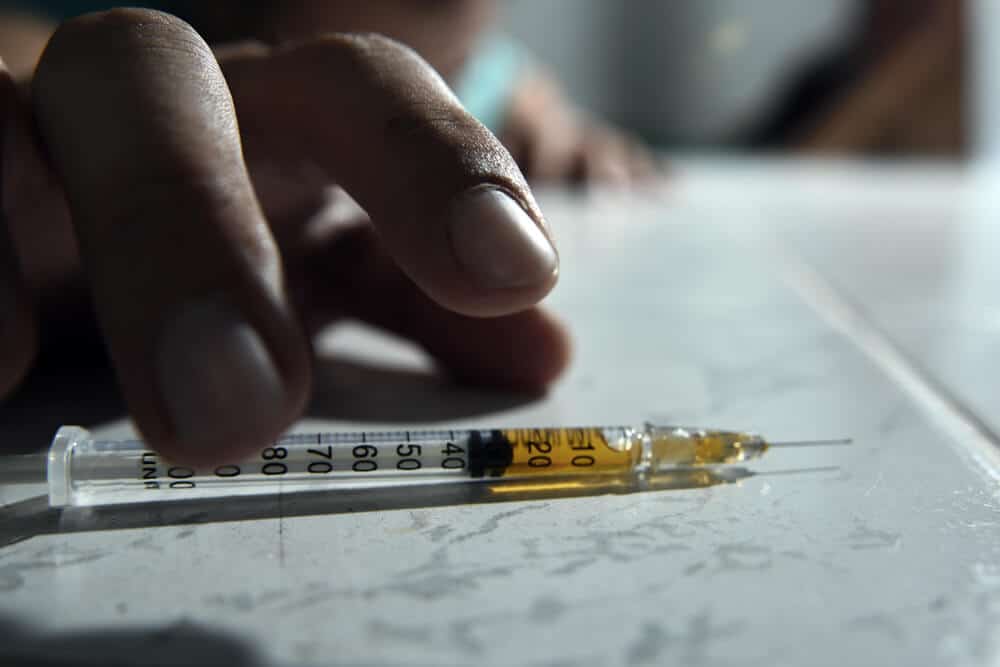
Signs of Heroin Addiction
Legacy Healing Center Blog
Substance abuse is a serious condition with life-altering consequences, making it important to recognize the signs of heroin addiction as early as possible. The powerful effects of heroin can lead to noticeable changes in both physical health and behavior, often signaling dependency before a person seeks help. Family members and friends familiar with these signs are better equipped to identify potential problems, allowing them to encourage intervention and offer support, potentially guiding a loved one toward recovery sooner. At Legacy Healing Center, we are dedicated to helping people and families affected by heroin addiction, offering a pathway through treatment for heroin addiction that begins with safe, supported detox and continues with long-term recovery strategies.
Why People Use Heroin
Heroin is one of the most addictive substances, primarily due to the intense euphoria it creates when it binds to the brain’s opioid receptors. This rush of pleasure is often followed by a calming effect that can make the user feel disconnected from pain or stress. Over time, repeated heroin use alters the brain’s chemistry, making it difficult for the person to experience pleasure naturally without the drug. These changes drive a cycle of use as people continue to seek that same initial high, eventually leading to dependency.
Why is heroin so addictive? As use progresses, the body builds a tolerance, requiring larger amounts of the drug to achieve the same effects. This need for higher doses can quickly lead to severe physical dependence, where stopping or reducing use causes painful withdrawal symptoms. This intense cycle of need and relief makes heroin especially challenging to quit without support.
How is heroin used? Heroin is typically injected, smoked, or snorted. Injection provides a rapid, intense high and is one of the most common methods among people with a heavy dependency. Smoking or snorting heroin may produce a slower onset of effects but can still lead to addiction. The method of use often affects how quickly dependency develops, with injection being one of the most potent forms of delivery.
Signs There’s an Addiction
Recognizing the signs of heroin addiction is essential, as these physical and behavioral symptoms can indicate that someone may need help. Below are some of the primary signs of heroin use that may suggest a dependency on the drug.
Physical Signs of Heroin Use
The physical signs are often among the most apparent indicators. Heroin use has immediate and lasting effects on the body, which can manifest through visible symptoms:
- Constricted Pupils: Heroin use typically causes pupils to become very small, even in dim lighting.
- Track Marks: Those who inject heroin may show puncture wounds or bruising along veins, especially on arms or legs.
- Weight Loss: Unexplained weight loss and neglect of general health can occur as the addiction progresses.
- Poor Hygiene: Often, personal grooming declines, leading to a disheveled appearance.
- Drowsiness or “Nodding Off”: Heroin users may appear excessively drowsy, falling asleep in inappropriate situations.
- Flu-like Symptoms: Withdrawal from heroin can bring symptoms such as body aches, sweating, nausea, and fatigue.
These physical changes are signs of a body under strain from heroin use; they often worsen over time as dependency deepens.
Behavioral Signs of Heroin Addiction
Behavioral changes are also significant signs of heroin addiction. These changes affect how a person interacts with others and handles daily responsibilities:
- Increased Secrecy and Isolation: People may withdraw from family and friends, becoming secretive about their whereabouts and activities.
- Financial Difficulties: Frequent borrowing, sudden debt, or missing valuables may signal attempts to fund drug use.
- Decline in Performance: Drops in work or school performance, along with absenteeism, are often linked to substance use.
- Possession of Paraphernalia: Finding items like needles, syringes, burnt spoons, or small plastic bags may indicate heroin use.
- Mood Swings: Rapid changes in mood, irritability, and euphoria can all be linked to the highs and lows of heroin use.
These behavioral signs can often lead to a breakdown in personal relationships and responsibilities, highlighting the toll addiction takes beyond physical health.
How Legacy Healing Center Can Help
At Legacy Healing Center, we understand the devastating impact of heroin addiction and the toll it takes on both the person and their loved ones. Recognizing the signs of heroin addiction is an essential step in getting help; our team is here to support you or your loved one every step of the way.
Our heroin detox programs offer a safe and supervised environment to manage withdrawal symptoms. Detox is the first step for those struggling with heroin addiction and looking for recovery, as it allows the body to safely rid itself of toxins while minimizing the physical discomfort of withdrawal. This step builds a foundation for the next stages of treatment.
After detox, we offer heroin addiction treatment that includes individual counseling, group therapy, and holistic support. These therapies address the root causes of addiction, helping people develop healthy coping skills and rebuild their lives. Our treatment programs are tailored to each person’s needs, focusing on providing the tools for long-term recovery.
If you or a loved one is struggling with the signs of heroin addiction, know that help is available. Legacy Healing Center provides compassionate, effective care to guide people through recovery and help them reclaim a healthier, substance-free life. Contact us today to begin your journey toward healing and a brighter future.
